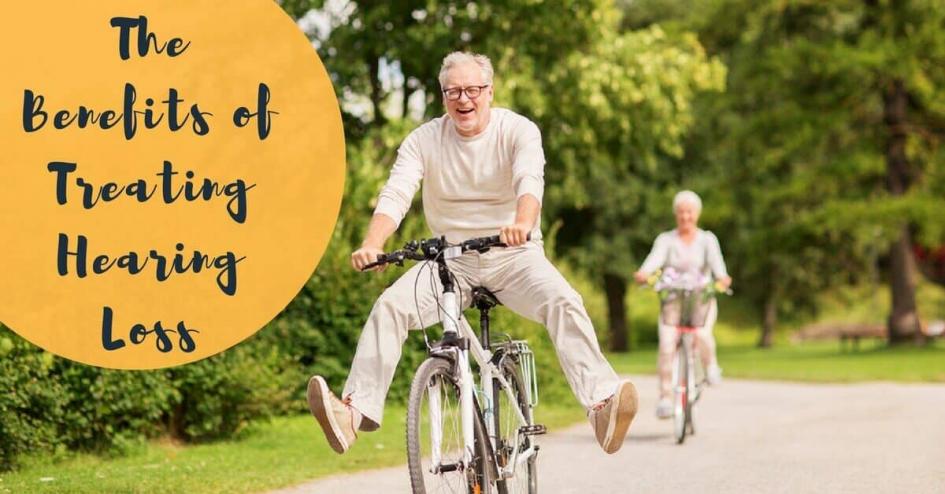
The Benefits of Treating Hearing Loss
Mar 26, 2018
One in six UK citizens are affected by hearing loss. But only 20% of those are using hearing aids. That leave 80% who are unaware or unwilling to take the step. They are part of the group who take an average of 10 years to address their hearing difficulties. There are a lot of ways hearing aids can improve your life, but these are probably the most important.
You can earn more
Workplace relationships depend on clear communication and wearing an assistive hearing device can help to improve one’s chances of career success. Your ability to hear has a huge effect on your earning potential, according to recent research by the Better Hearing Institute. They found that if you don't do anything to address your hearing loss to level the playing field between you and your clients, your annual earnings could reduce by $30,000. But then if you were to use hearing aids, this risk of loss in earnings could be lowered by as much as 90%, especially if your treat your hearing loss before it becomes too severe. The difference in potential salary earnings between the severe and the mild hearing loss groups is about $14,000. It's a bit of a no-brainer - if you find money important, then you should consider using hearing aids.You can reduce effects of tinnitus
If you are one of the 10% of the British population who suffers from a high-pitched ringing sound in your ears (also known as tinnitus) then this might make you listen. Modern hearing aids have tinnitus settings which masks the sound in your ears. This makes it more difficult to notice the sound and helps you to focus better on what is in front of you. And this positive effect is doubled if you happen to have hearing loss in the same frequency range as your tinnitus! Some modern hearing aids even come with an array of masking sounds to suit your preferences. You can choose from a variety of noise colors and environmental sounds. Instead of ringing in your ears, how would you like to listen to the sounds of the sea instead?You can have higher emotional well-being
There is a myriad of benefits to your social and emotional health from using hearing aids. In public, you can improve your confidence by improving your ability to communicate without a loss in understanding and being able to notice the often-opaque nuances of communication. In It is also essential in private situations communicating with those closest to you, easy understanding leads to better communication which, as we all know, is the bedrock of a successful marriage or relationship. Finally, hearing aids are important to personal safety, as our hearing warns us of potential danger or alerts us to someone else’s distress. Wearing hearing aids thus makes us feel relaxed in our surroundings, especially when outside of our homes.You can slow cognitive decline
Hearing is achieved using your ears and the computer which processes that sound, your brain. The brain needs the constant flow of sounds from the outside world to ensure it remains active and healthy throughout your life. But if you have hearing loss, (and doubly so if you are over 50) not being able to hear as much can lead to your brain not having the regular ‘exercise’ it needs to stay sharp. This has been a link to a number of conditions including reduced mental health, dementia and cognitive decline. You shouldn't be surprised to hear that wearing a hearing aid can reduce the risks of cognitive decline. Parts of the brain are again stimulated which means the brain is more active again. Reduced hearing loss also tends to make people more social, which reduces the risk of mental health decline. The 80% of those with untreated hearing loss can benefit greatly from hearing aids. And recent technological progress has made them more effective, comfortable and convenient than ever. The faster you identify the extent of your hearing loss and begin using professionally fitted hearing aids, the sooner you can get on with enjoying your improved life.Visit Us at House of Hearing
The first step is to take a hearing test. Make an appointment at one of our House of Hearing locations, and our staff will be able to provide comprehensive hearing tests and, if necessary, hearing aid fittings.Our Clinics
All House of Hearing clinics are in town centre locations and accessible to public transport and parking. Home visits also available if mobility is an issue.


.png)
.png)
.png)

.png)
